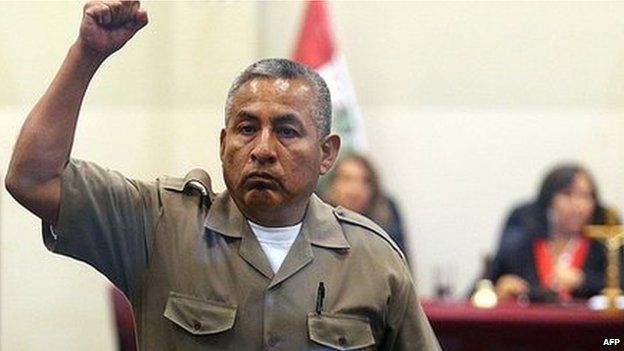US designates Peru's Shining Path 'drug traffickers'
- Published

The United States treasury department has designated Peruvian Maoist rebel group Shining Path a "significant foreign narcotics trafficker".
It also named three Shining Path leaders as drug traffickers and froze their assets in the US.
The once-powerful Shining Path has been on the US state department's list of terrorist organisations since 1997.
The treasury said the guerrilla group had evolved into a "criminal narco-terrorist organisation".
In a statement on Monday, it said that the Shining Path taxed the production, processing and transport of cocaine.
In 2013, Peru overtook Colombia as the world's largest producer of coca, the raw ingredient of cocaine, according to figures by the United Nations Office on Drugs and Crime.
The three Shining Path leaders singled out under the US Kingpin Act are Florindo Flores Hala and brothers Victor and Jorge Quispe Palomino.
Florindo Flores , better known as Comrade Artemio, was arrested in Peru in 2012 and is serving a life sentence for terrorism.
Victor and Jorge Quispe remain at large and on the Peruvian security forces' list of most wanted men.
They will have their US assets frozen and US citizens will be banned from engaging in transactions with them.
The Shining Path posed a major challenge to the Peruvian state in the 1980s and early 90s.
After the capture of its main leaders its influence was greatly reduced, but the Peruvian government has long warned that the guerrilla group had shifted its attention to the illegal drugs trade.
US treasury official John Smith said that designating the group as narcotics traffickers would support "the government of Peru's efforts to actively combat the group"
- Published8 June 2013
- Published6 April 2012